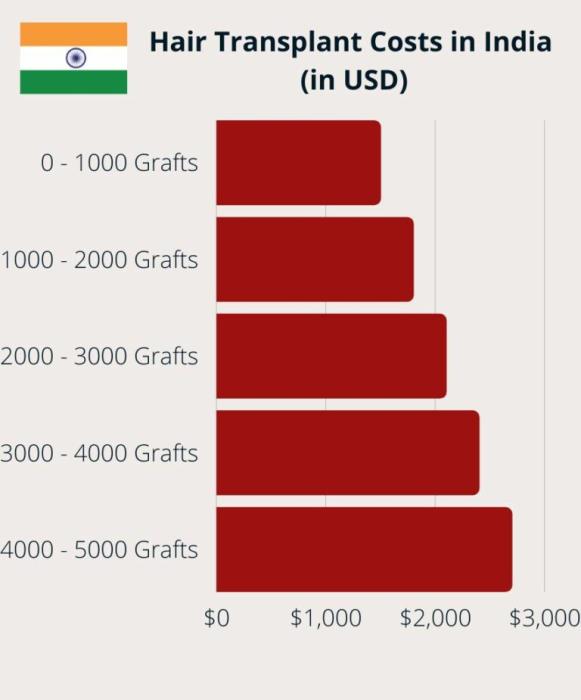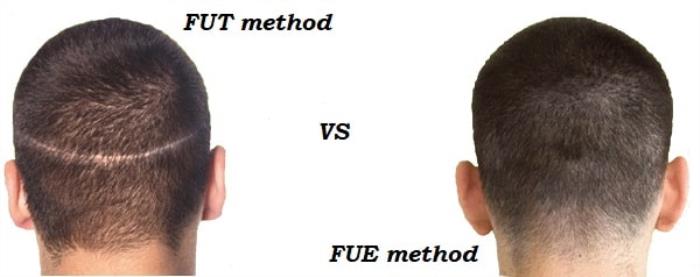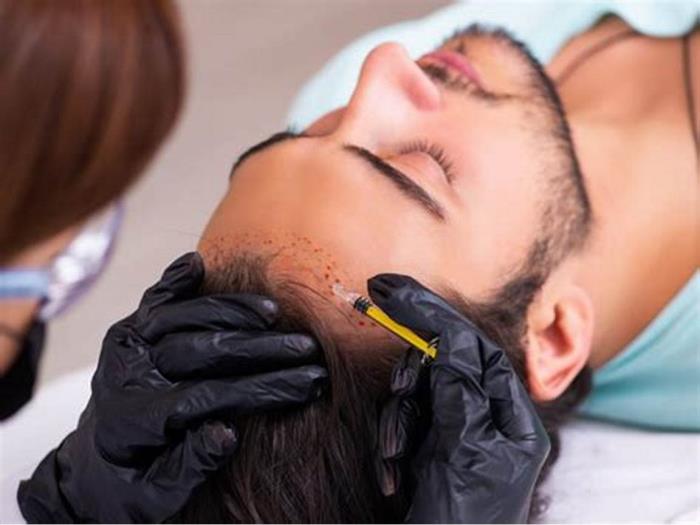Hair transplants are surgical procedures designed to restore hair to areas of the scalp affected by thinning or baldness. These techniques involve relocating hair follicles from a donor site, usually the back of the head, to balding or thinning areas. The procedure has gained popularity due to its effectiveness and the natural-looking results it can achieve. Understanding the different methods and considerations involved in hair transplants is essential for those considering this option as a solution for hair loss.
In addition to aesthetic improvements, hair transplants can significantly enhance an individual’s self-esteem and overall quality of life. As such, prospective patients should be well-informed about the available techniques and the factors influencing the procedure.
Overview of Hair Transplant Techniques
The two primary techniques for hair transplants are Follicular Unit Extraction (FUE) and Follicular Unit Transplantation (FUT). FUE involves extracting individual hair follicles from the donor area and transplanting them into the recipient site, leaving minimal scarring. This technique is often preferred for its minimally invasive nature and quicker recovery time.
In contrast, FUT involves removing a strip of skin from the donor area, which is then dissected into individual follicular units for transplantation. While FUT can yield a higher number of grafts in a single session, it results in a linear scar. Both techniques have their advantages and disadvantages, and the choice between them largely depends on the patient’s specific needs and preferences.
Factors Influencing Hair Transplant Costs in India
Several factors influence the cost of hair transplants in India. These include the technique used (FUE vs. FUT), the expertise of the surgeon, the clinic's location, and the extent of hair loss. Additional factors such as the number of grafts required, pre-operative assessments, and post-operative care can also affect overall costs.

Furthermore, the reputation of the clinic and the technology employed can impact pricing, with advanced techniques and higher-quality equipment often leading to higher expenses. Understanding these factors can help individuals budget for the procedure and make informed decisions.
Average Cost of Hair Transplants in Major Indian Cities
The average cost of hair transplants in India varies by city and can range from ₹30,000 to ₹2,00,000 or more, depending on the factors mentioned earlier. In major cities like Mumbai, Delhi, and Bangalore, prices tend to be higher due to the presence of more specialized clinics and experienced surgeons.
For instance, the cost per graft in these cities can range from ₹30 to ₹100, with the total cost influenced by the number of grafts needed. On the other hand, smaller cities may offer more competitive pricing, although it is essential to ensure that quality and standards are not compromised.
Comparing FUE and FUT: Cost Differences Explained
When comparing FUE and FUT, cost differences are primarily due to the methods and resources involved in each technique. FUE is generally more expensive because it requires advanced technology and meticulous skill to extract individual follicles, often resulting in a longer procedure time and higher labor costs.

On the other hand, FUT may be less expensive as it allows for a greater number of grafts to be harvested in a single session. However, the choice between FUE and FUT should not solely depend on cost; factors such as the desired aesthetic outcome, recovery time, and individual preferences should also be considered. Ultimately, a thorough consultation with a qualified specialist can help determine the best approach based on both financial and personal criteria.
The Role of Surgeon Experience and Clinic Reputation
The experience of the surgeon and the reputation of the clinic play critical roles in the success of hair transplant procedures. Experienced surgeons often possess refined skills and a deeper understanding of hair restoration techniques, which can lead to more natural-looking results and fewer complications. Moreover, a reputable clinic typically adheres to high standards of care, employs advanced technology, and offers a comprehensive range of services. Patients are encouraged to research surgeons' credentials, read reviews, and view before-and-after photos to gauge the clinic's overall quality and ensure they receive the best possible care for their hair restoration needs.
Additional Costs: What to Expect Beyond the Base Price
When considering a hair transplant, it's essential to account for additional costs beyond the base price of the procedure. These may include pre-operative consultations, diagnostic tests, medications for pain management, post-operative care, and follow-up visits. Additionally, patients may need to factor in expenses for hair care products, nutritional supplements, or alternative treatments that complement the surgery. Understanding the full scope of financial obligations helps patients prepare adequately and avoid unexpected financial burdens throughout the hair restoration process.

Financing Options for Hair Transplants in India
In India, various financing options are available to help patients manage the cost of hair transplants. Many clinics offer installment payment plans or partnerships with financial institutions that provide medical loans with flexible repayment terms. Patients can explore personal loans, credit card financing, or clinic-specific financing options that allow for budget-friendly payments. It's crucial to assess interest rates, terms, and total repayment amounts when considering financing solutions to ensure they align with one's financial situation.
Insurance Coverage: Is Hair Transplant Surgery Covered?
Hair transplant surgery is often considered a cosmetic procedure, which means it is typically not covered by health insurance plans. However, there may be exceptions for patients with underlying medical conditions that cause hair loss, such as alopecia areata or certain scarring diseases. It's advisable for patients to check with their insurance providers to understand their coverage options and any documentation required to determine eligibility. Being informed about insurance policies can help avoid unexpected costs and provide clarity on the financial aspects of hair restoration.

Hidden Costs to Consider Before Surgery
Before undergoing a hair transplant, it's essential to be aware of potential hidden costs that may arise. These can include fees for pre-operative tests, anesthesia, post-operative medications, and follow-up consultations that may not be included in the initial quoted price. Additionally, patients should consider the cost of travel if they are visiting a clinic in a different location. By discussing all potential fees with the clinic beforehand, individuals can create a more accurate budget and prevent unexpected financial strains during the recovery process.
Cost vs. Quality: Choosing the Right Clinic
When selecting a clinic for a hair transplant, weighing cost against quality is crucial. While lower-priced options may seem attractive, they can sometimes compromise the quality of care and outcomes. Patients should prioritize clinics with experienced surgeons, positive patient testimonials, and a strong reputation for successful procedures. Investing in a reputable clinic may lead to better long-term results, reduced risk of complications, and ultimately, greater satisfaction with the hair restoration journey. Careful research and comparison can help strike a balance between cost and quality.
The Importance of Researching Your Options
Researching hair transplant options is a vital step in ensuring a successful outcome. Patients should investigate various clinics, surgeons, and treatment methods to identify what best meets their needs. Reading reviews, seeking recommendations from friends or family, and exploring online forums can provide valuable insights into the experiences of others. Additionally, understanding the different techniques available, such as FUE or FUT, can help individuals make informed decisions. Thorough research empowers patients to choose a clinic that aligns with their expectations and enhances the likelihood of a positive experience.
Understanding Package Deals and Promotions
Many clinics offer package deals and promotions for hair transplant procedures, which can provide cost savings. These deals may include discounts for multiple sessions, bundled services (like post-operative care), or promotional rates for new patients. While package deals can be attractive, it's essential for patients to evaluate the quality of care and the qualifications of the clinic before making a decision. Understanding what is included in the package, such as follow-up visits and any additional treatments, can help ensure that the promotion aligns with their overall treatment plan and expectations.
Long-Term Costs: Maintenance and Follow-Up Treatments
In addition to the initial cost of a hair transplant, patients should consider the long-term costs associated with maintenance and follow-up treatments. Depending on individual hair loss patterns and the effectiveness of the transplant, some patients may require additional procedures or treatments to maintain their results. This could include medications, PRP therapy, or other non-surgical options. Understanding these potential ongoing costs is important for budget planning and ensures that individuals are prepared to support their hair restoration journey effectively.
Patient Testimonials: Value for Money Analysis
Patient testimonials can provide valuable insights into the perceived value of hair transplant procedures. Reading about others' experiences can help potential patients gauge the effectiveness of specific clinics and surgeons in relation to the costs involved. Testimonials often highlight the satisfaction level with results, the quality of care received, and the overall experience throughout the hair restoration process. By analyzing these accounts, individuals can better assess whether the investment aligns with their expectations and determine which clinic offers the best value for their money.
Alternatives to Hair Transplants: Cost Comparisons
When considering hair restoration, various alternatives to hair transplants can provide effective solutions at different price points. Options such as topical treatments like minoxidil, which typically cost around ₹1,500 to ₹3,000 for a month's supply, or platelet-rich plasma (PRP) therapy, ranging from ₹15,000 to ₹30,000 per session, can be more affordable initially compared to surgical options. Additionally, low-level laser therapy and hair growth supplements can also serve as non-invasive alternatives, generally costing between ₹5,000 to ₹10,000 per month. Evaluating the costs of these treatments in relation to their effectiveness and longevity can help individuals make informed choices about their hair restoration journey.
Trends in Hair Transplant Pricing in India
Hair transplant pricing in India has shown significant trends over recent years, reflecting advancements in technology and techniques. On average, the cost of a hair transplant ranges from ₹30,000 to ₹1,50,000, depending on factors such as the clinic's reputation, the surgeon's experience, and the method used (FUT or FUE). As more clinics enter the market, competition has driven some prices down, but it is essential to balance cost with quality. Additionally, patients are increasingly seeking clinics that offer comprehensive packages, including pre- and post-operative care, to ensure a holistic approach to their hair restoration.
How to Prepare Financially for a Hair Transplant
Preparing financially for a hair transplant involves several key steps. First, patients should research the average costs of procedures in their area and budget for potential additional expenses, such as pre-operative tests and post-operative care, which can add another ₹10,000 to ₹20,000. Exploring financing options, such as installment plans or medical loans, can also ease the financial burden. Furthermore, individuals should consider setting aside funds for follow-up treatments or maintenance to sustain results over time. Creating a detailed budget can help ensure a smooth financial transition into the hair restoration process.
Regional Variations in Hair Transplant Costs
The cost of hair transplants can vary significantly across different regions in India. For instance, major metropolitan areas like Mumbai and Delhi may charge between ₹40,000 to ₹1,50,000, while smaller cities might offer procedures for ₹30,000 to ₹80,000. These variations are influenced by factors such as the local demand for services, the availability of skilled surgeons, and the cost of living. Patients are encouraged to weigh the benefits of traveling for a procedure against the potential savings, ensuring that quality and safety remain priorities regardless of the location.
Conclusion: Making an Informed Decision on Hair Transplant Costs
In conclusion, making an informed decision about hair transplant costs involves thorough research and consideration of various factors. Understanding the price range of different treatment options, exploring financing plans, and assessing regional variations can empower patients to choose the best solution for their needs. While cost is an important consideration, prioritizing the quality of care, surgeon experience, and clinic reputation is equally crucial to achieving satisfactory results. With proper planning and informed decision-making, individuals can navigate the financial aspects of their hair restoration journey effectively.
How to Maintain Your Hair After a Transplant
Discover essential tips on maintaining your hair after a transplant to ensure the best results. This includes post-operative care, recommended hair products, and lifestyle practices that promote healthy hair growth. Proper maintenance is key to achieving long-lasting and natural-looking results from your procedure.
Latest Advancements in Hair Restoration Technology
Stay updated on the latest advancements in hair restoration technology, including cutting-edge techniques and tools that improve the efficiency and outcomes of hair transplant procedures. This section highlights innovations such as robotic-assisted transplants, advanced follicular unit extraction methods, and new research in hair growth stimulants.
Best Hair Transplant Surgery in India
The Best Hair Transplant Surgery in India provides patients with effective solutions for hair loss, utilizing advanced techniques to achieve natural-looking results and boost self-esteem.
Best Hair Transplant Hospitals in India
The Best Hair Transplant Hospitals in India are equipped with cutting-edge technology and experienced teams, offering comprehensive care from initial consultations to post-surgery follow-ups for optimal recovery.
Hair Transplant Surgery Cost in India
The Hair Transplant Surgery Cost in India is affordable, ensuring transparency and value while delivering high-quality treatment in top-tier facilities.
Best Hair Transplant Surgeons in India
The Best Hair Transplant Surgeons in India have extensive expertise in hair restoration techniques, providing personalized care to achieve the best results tailored to each patient's unique needs.
FAQ
What is the average cost of a hair transplant in India?
The average cost of a hair transplant in India typically ranges from ₹30,000 to ₹1,50,000, depending on factors such as the chosen method (FUT or FUE), the reputation of the clinic, and the extent of hair loss.
Are there financing plans available for hair transplants?
Yes, many clinics in India offer financing plans to help patients manage the cost of hair transplants. These may include installment payment options or partnerships with financial institutions for medical loans with flexible repayment terms.
How do I choose a reputable clinic based on cost?
When choosing a reputable clinic based on cost, it is important to look beyond just the price. Research the clinic’s reputation, read patient testimonials, assess the qualifications of the surgeon, and ensure that the clinic adheres to high standards of care to ensure that you receive value for your investment.
What factors contribute to the high or low cost of hair transplants?
Several factors contribute to the cost of hair transplants, including the technique used (FUT or FUE), the surgeon's experience, the clinic's location, the reputation of the clinic, and additional services included in the package, such as consultations and post-operative care.
Is it worth investing in a hair transplant, considering the cost?
Investing in a hair transplant can be worth it for many individuals, especially if they are experiencing significant hair loss that affects their self-esteem. When evaluating the worth, consider the potential long-term benefits of improved appearance and confidence against the financial investment involved.